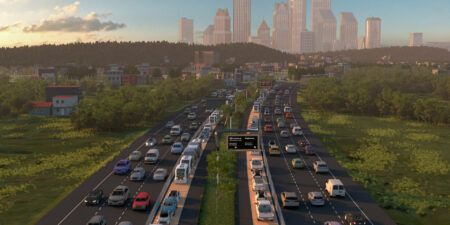Subsidized by the German Federal Ministry of Economics and Technology, the OSCAR (Open Service Cloud for the Smart Car) project is aiming to integrate electric vehicles (EVs) into the cloud by building a modular information and communication technology (ICT). Using cloud-based V2X (Vehicle-to-Vehicle/Infrastructure) technologies, the project is testing a continuous data exchange to collect and process a variety of vehicle parameters, which will allows drivers and fleet operators to gain access to important planning data and other additional functions, such as optimized servicing schedules and range forecasts for EVs. A consortium of German technology companies and research institutes is working on the OSCAR project, including the EV manufacturer, StreetScooter, and the FEV Group, an automotive development and testing services provider.
Vehicles from StreetScooter and FEV’s electric fleets were used as test vehicles after being equipped with FEV’s iCU (intelligent Connection Unit) development platform, which has access to the data stream from the vehicles’ onboard networks. The data collected via CAN bus and a GPS system can be sent to the cloud via a 3G UMTS (Universal Mobile Telecommunications System) interface from the vehicle. Data can also be received by vehicles after a service-oriented analysis in the cloud, creating a bi-directional communication path. The data can be accessed on commercial smartphones or tablets directly in the vehicle via Bluetooth or local WLAN. To send the right data to the correct addresses in the cloud structure, an FEV-developed AES (Automotive Embedded Service) server collects the data and decides what information from the vehicle should be forwarded to a particular address, according to pre-defined filtering rules.
Vehicles can retrieve current data, as well as their historical statistics through the effective combination of cloud data and apps that are operated via the vehicle display (HMI). Drivers can plan their route continuously, based on traffic information, the vehicle’s range, its real-time battery state and the energy consumption of various systems. Driving profiles and fuel consumption for different drivers can be compared and optimized by fleet operators. “Digital data can offer information on position, operating state and battery state for fleet management,” explained FEV’s Professor Günter Feyerl, “In addition, they allow preliminary diagnoses and an improved coordination of maintenance schedules.” Dr Stefan Müller-Schneiders from FEV, added, “Within the framework of the OSCAR project, we have developed a new, open and manufacturer-independent ICT architecture for electric vehicles and have intensively tested it in the Aachen region under real life scenarios.” The project partners have also established a DIN Spec (91324); a data set for an open-service cloud, which can be used for OEM and third party services.




